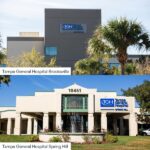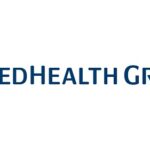 EHR, PHR, HIE, HIN, ARRA, “meaningful use,” “medical home,” collaboration, innovation and other acronyms and concepts new to health care are indicators of the confusion currently facing the physician community about the coming transformation of our health care system from paper to electronic. These topics were recently discussed at the successful Spring Health IT Summit of “IHT2(1) in Ft. Lauderdale by more than 200 executive-level representatives of physician organizations, hospitals, payors, technology vendors and experts, government and policy “wonks.” Speakers agreed that it is no longer a matter of “if” physicians need to adopt the new technology, but when they will realize that an effective electronic health record (“EHR”) is not merely a burden and a computer generated alternative to paper records, but a tool that can make their practices more efficient, enhance patient care quality and service and position them to participate in the coming state and national health information networks (“HINs”). ARRA’s financial incentives will be available starting in 2011 to assist physicians and providers with the cost of purchasing electronic health records and achieve their meaningful use over the coming 5 years. Those who fail to do so will face reductions in Medicare and Medicaid reimbursement. A sense of urgency was stressed, as the bulk of incentive funds is available in the next 2 years and those who haven’t started soon may not qualify for the full benefits.
EHR, PHR, HIE, HIN, ARRA, “meaningful use,” “medical home,” collaboration, innovation and other acronyms and concepts new to health care are indicators of the confusion currently facing the physician community about the coming transformation of our health care system from paper to electronic. These topics were recently discussed at the successful Spring Health IT Summit of “IHT2(1) in Ft. Lauderdale by more than 200 executive-level representatives of physician organizations, hospitals, payors, technology vendors and experts, government and policy “wonks.” Speakers agreed that it is no longer a matter of “if” physicians need to adopt the new technology, but when they will realize that an effective electronic health record (“EHR”) is not merely a burden and a computer generated alternative to paper records, but a tool that can make their practices more efficient, enhance patient care quality and service and position them to participate in the coming state and national health information networks (“HINs”). ARRA’s financial incentives will be available starting in 2011 to assist physicians and providers with the cost of purchasing electronic health records and achieve their meaningful use over the coming 5 years. Those who fail to do so will face reductions in Medicare and Medicaid reimbursement. A sense of urgency was stressed, as the bulk of incentive funds is available in the next 2 years and those who haven’t started soon may not qualify for the full benefits.
EHR: Will You Be a Winner or a Loser?
South Florida is fortunate to have won a new federally-funded Regional Extension Center (“REC”) which will assist small primary care physician practices, which lack the resources being expended by larger providers in implementing this new technology, to select from among hundreds of EHR products and enjoy group purchasing benefits. The REC also will provide them with technical support to assess and redesign their workflow and training to take advantage of what the technology can offer and lessen the disruption and burden of implementing EHR in their practices. Lisa Rawlins, new Executive Director of the S. FL REC, expressed her philosophy, shared by several other IHT2 presenters, that providers will benefit most if they look at health information technology, not as a mere tool, but as a new line of business/service, which can create patient loyalty, enhance services to patients, such as online appointment scheduling, email communication with physicians, online prescription refills and referrals, etc.
There was consensus that patients will be driving physicians to EHR even more than federal subsidy funds, as they demand more access to their personal health information (“PHR”) and more convenient services, such as described above. Physicians in the forefront of EHR adoption can differentiate themselves in the marketplace by offering their patients secure online portals to view their PHR, receive educational information, disease management and other desirable benefits.
In addition to ARRA incentive funds and REC support, Congress and CMS created new exceptions to the Stark Law and Anti-Kickback Statute to enable hospitals, payors and other larger providers to help physicians with the cost of EHR, if such assistance meets certain requirements. Lastly, the IHT2 speakers agreed on the importance of spending the time and resources necessary to negotiate their EHR contracts with the vendors. Price is only one component. Assuring that vendor promises of their product achieving “meaningful use” and qualifying for ARRA subsidies are written into the contract, as well as customizations needed for your practice, maintenance and support obligations and remedies if the technology has problems or fails, are critical to the long term success of your investment in EHR and other health information technology. Don’t accept the vendor’s standard statement that its contract is not negotiable. This is generally not true and if it is, strongly consider saying goodbye to that vendor.

























